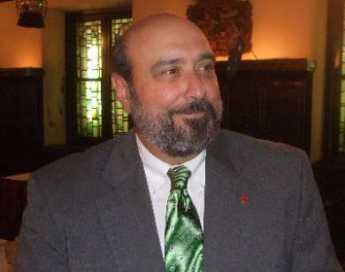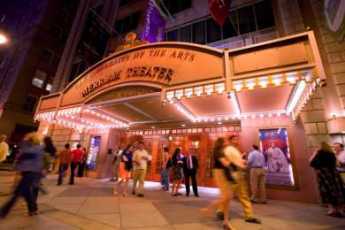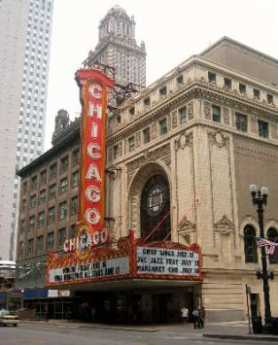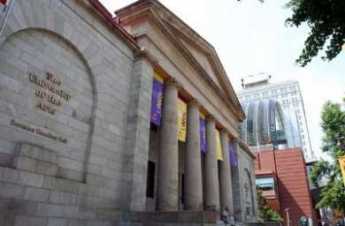Related Topics
Theatre in Philadelphia
Theater has declined, everywhere in the western world. But in Philadelphia, even today if you attended every new play you would keep pretty busy.
Academia in the Philadelphia Region
Higher education is a source of pride, progress, and aggravation.
Cultural
Culture and Traditions (2)
Right Angle Club 2010
2010 is coming to a close, a lame-duck session is upon us, and probably after that will come two years of gridlock. But the Philadelphia Men's Club called the Right Angle, keeps right on talking about the current scene. A few of these current contents relate to speeches given elsewhere.
America's New Theater Capital

|
| Gene Terruso |
In the Elizabethan era, London experienced a remarkable burst of legitimate theater; Shakespeare was only one part of it. There were fifty-five theaters in London at a time when only two were open in Paris; no one is certain why that happened. Similarly, no one is sure why Philadelphia has decided to have a flourishing theater scene, but if you look around it is true. After 1929, Philadelphia became a "try-out town" for plays hoping to go to New York; we were in a class with New Haven CN and Washington DC. Home-grown talent languishes in competition for audiences who would rather see famous visiting stars. The try-out image is harmful and must disappear before local talent can develop. Once established, however, audiences rather like a theater company with a deep bench; fresh young aspirants at every level, as contrasted with one famous star surrounded by hacks in the lesser roles. The same reaction is seen in minor-league baseball. And no doubt union seniority systems are partly designed to protect the hacks from competing young aspirants. A certain amount of amateurism is forgiven for inexpensive amateurs; when they get expensive it's better to watch movies. The Right Angle Club was pleased to have it all described if not explained by Gene Terruso, the Professor of Drama at the University of the Arts on Broad Street where the old Ritz-Carlton used to be.

|
| The Merriam Theater |
As far as inside gossip is concerned, the Merriam Theater is owned by the University of the Arts but is sort of doomed to shabby prosperity for the next 13 years by a lease which is too lucrative to modify. That's why the seats are a little uncomfortable, the lobby dilapidated, and comparatively few student productions are on the stage. The University would like to have more student presentations but isn't in a financial position to displace the tenants generating such high revenue. The best that can be made of the present arrangement is to encourage the visiting professionals to mingle with the drama students, bedazzling and advising them how to advance in the Big Time. It's been a fairly successful compromise.
Until recently, Chicago seemed to have the most successful regional theater experience, but now is thought to be on a par with Los Angeles, Seattle, and Cincinnati whereas Philadelphia has supplanted it as the very best place to be. Going backstage, the kids express little interest in going to Broadway, where overpriced theater seems to them to be just part of the tourist industry. Television is regarded as old-fashioned, so Hollywood is unattractive to them, too. If that's all the future holds, these kids would rather become accountants and computer engineers. And stay right here if they can; that seems to be a central motif. Gene Terruso says there is an "Iceland phenomenon" in Philadelphia, a wonderful hidden place to live, so tell everybody else it is cold and dreary and they will stay away and not ruin it.

|
| The Chicago Theater |
The fact seems to be that Chicago is seen to have a great many "hole-in-the-wall" theaters, while Philadelphia has well over thirty flourishing theater troupes. The professor in him prompts Gene Terruso to postulate that the secret of our success is for each repertory troupe to specialize in something, get good at it, and bank on the motto Be clear about your mission; the audiences will follow. Therefore, we have Shakespeare companies, musicals companies, Restoration comedy companies, and so on. Some specialties are obviously more popular than others. Somewhere in this business school analysis is the likelihood that artsy craftsy people are seldom very good at running a business, so theater success does depend on non-actors who are business-oriented minding the store, and possibly not much good at acting. It's a lesson many idealists and liberals need to learn, and not just in the theater.

|
| University of the Arts |
Professor Terruso does ruefully admit that the University of the Arts is a conservatory, by which he means a trade school. Its graduates are more likely to know how Hamlet should run a sword through Polonius without killing the other actor than to discuss the place of Shakespeare in our cultural heritage. To have a successful theater, however, there has to be an enthusiastic audience. Somewhere, our universities have found it easier to provide a liberal education to one group of people and impart the tricks of the trade as a specialty of someone else. If the two talents merge at all, it is in the profession of Dramaturge, but all in all, it would be better if both sides of the footlights understood each other somewhat better. Going to the theater really isn't a specialty, and it isn't a secret society, either. That's part of the response to city leaders who greatly desire a thriving theater, but wish we didn't have to see so many of those artist types walking around town. Both groups need to understand "There's plenty of room at the top, but no room at all at the bottom."
Originally published: Friday, August 06, 2010; most-recently modified: Wednesday, August 07, 2019